Women and Other Wild Creatures: Matrilineal Tales
Zinaida (Ukraine), Kateryna Babkina (Ukraine), Iryna Maksymova (Ukraine), Rita Maikova (Ukraine), Aya Shalkar (Kazakhstan/US), Yerke Abuova (Kazakhstan/US), Nicole Peyrafitte (France/US) and Susan Coyne (US).
Curated by NIna Levent, Ph.D.
June 3, 2022- August 26, 2022 (Extended)
Opening reception on June 3, 6-8pm
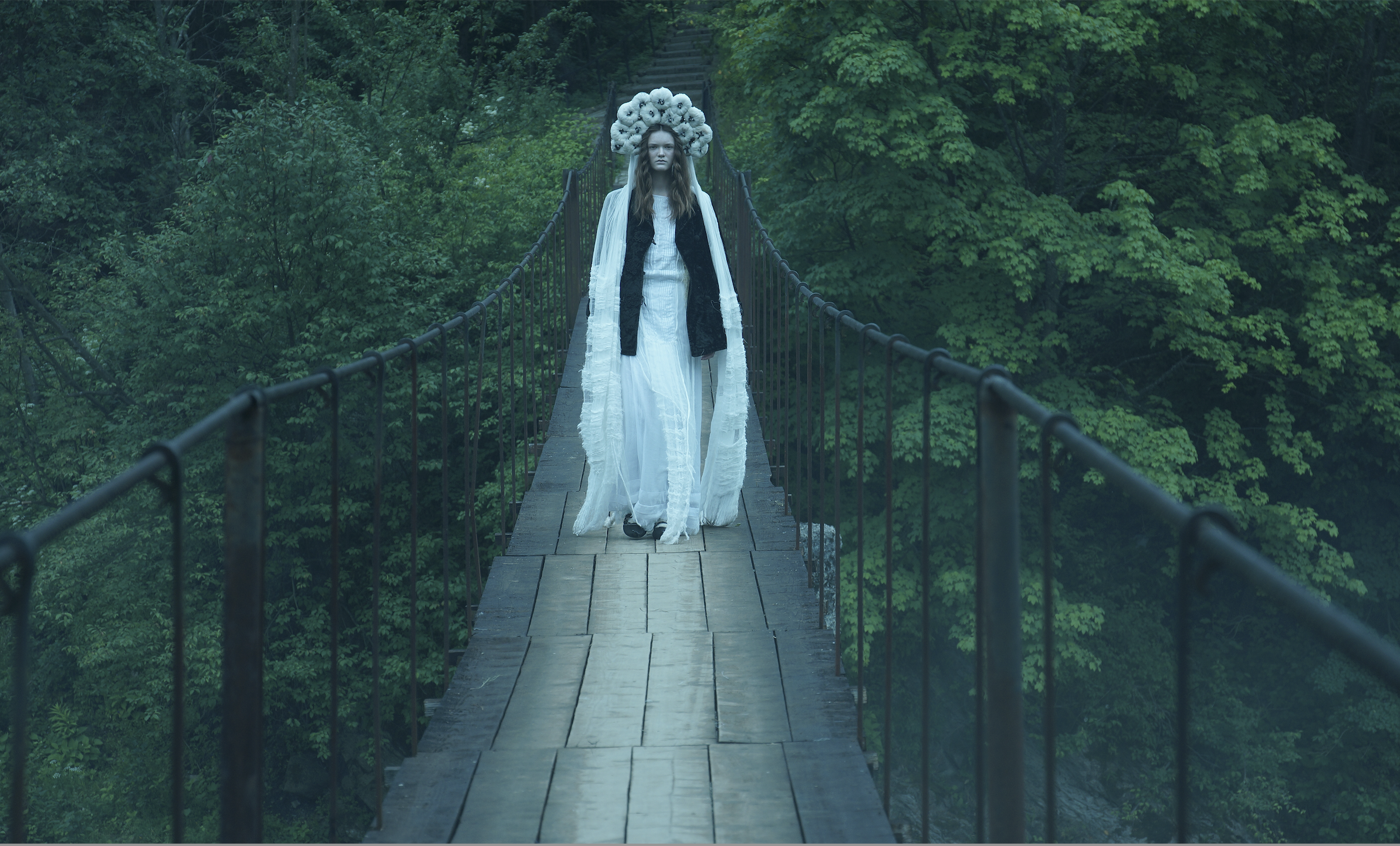
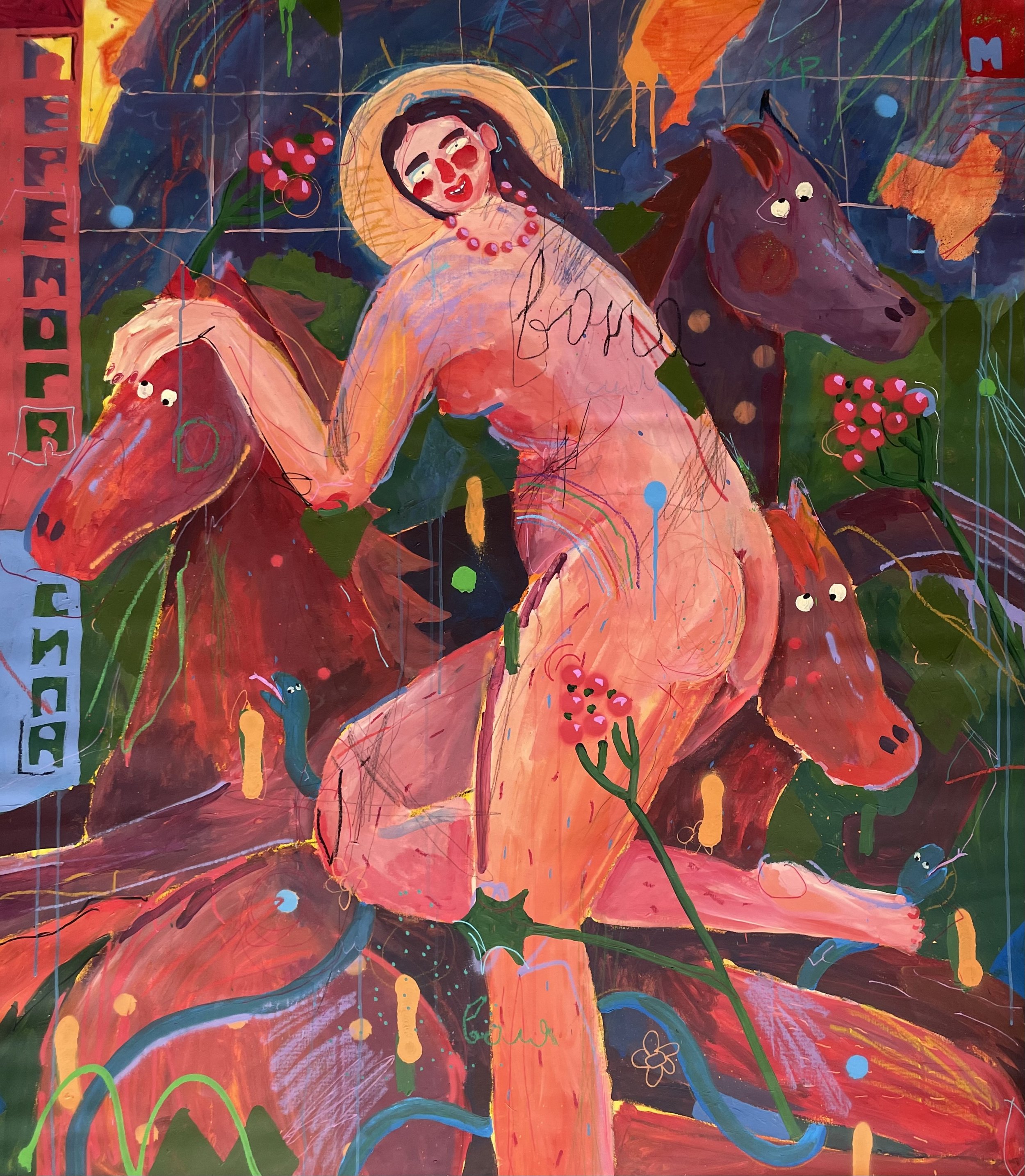
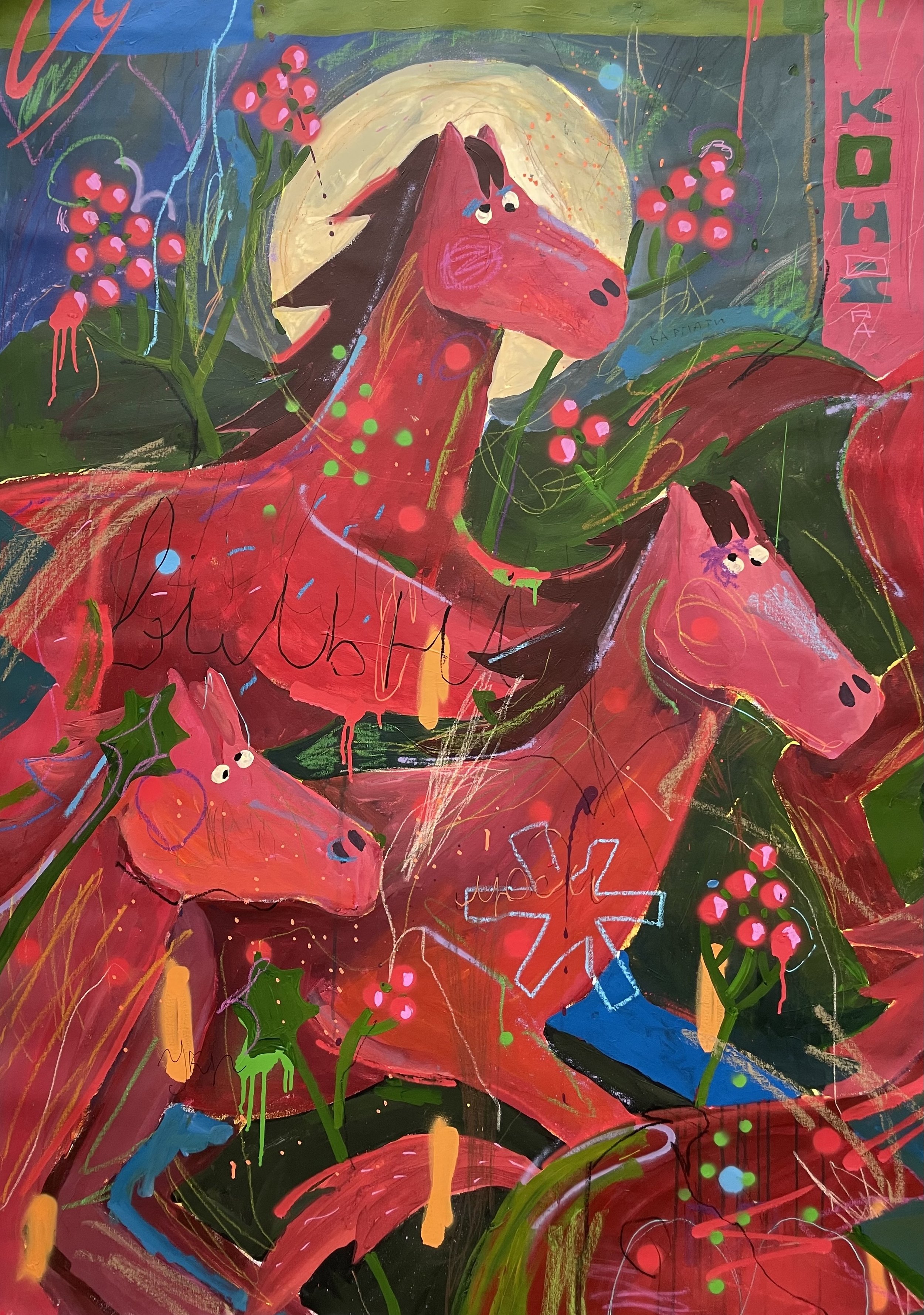
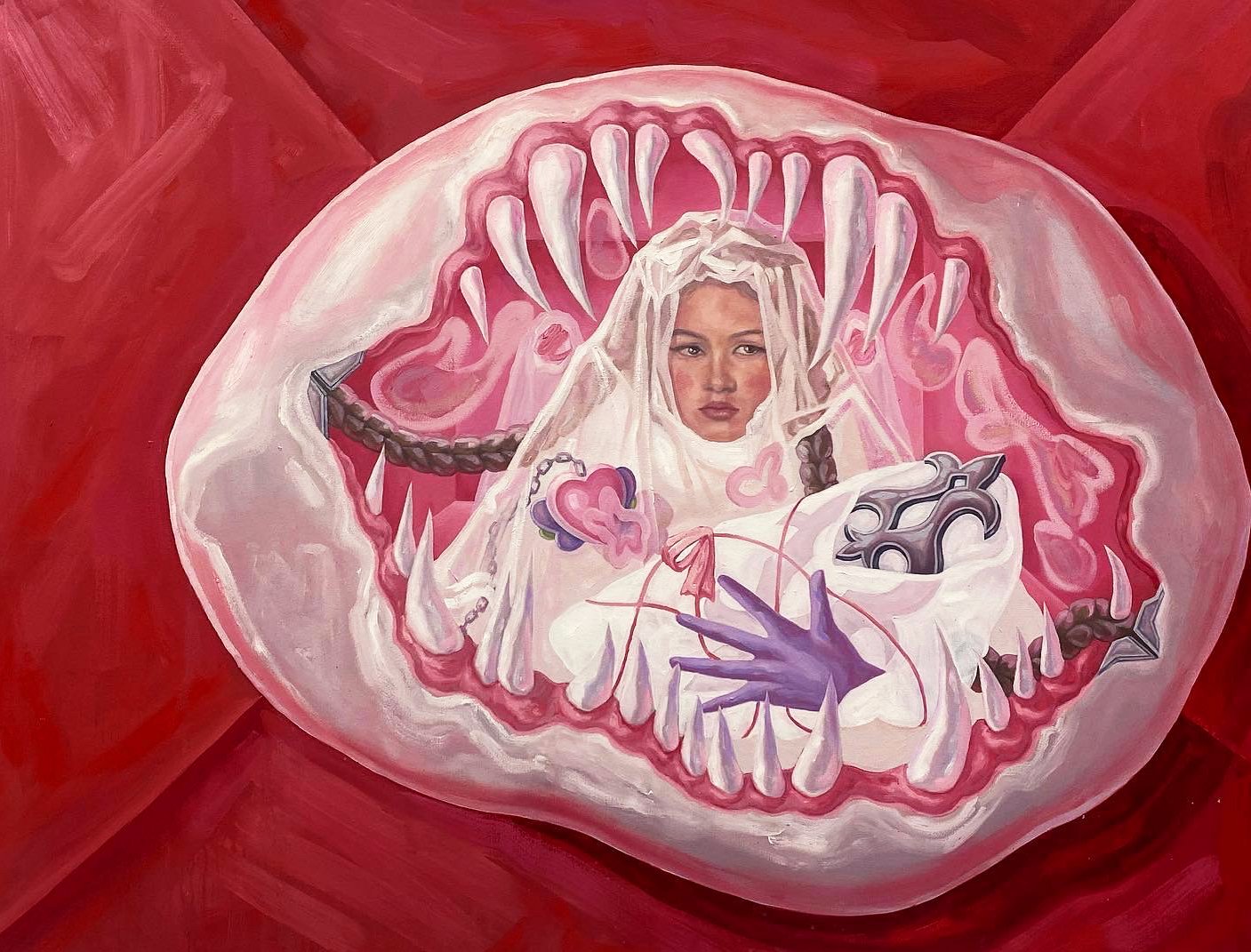
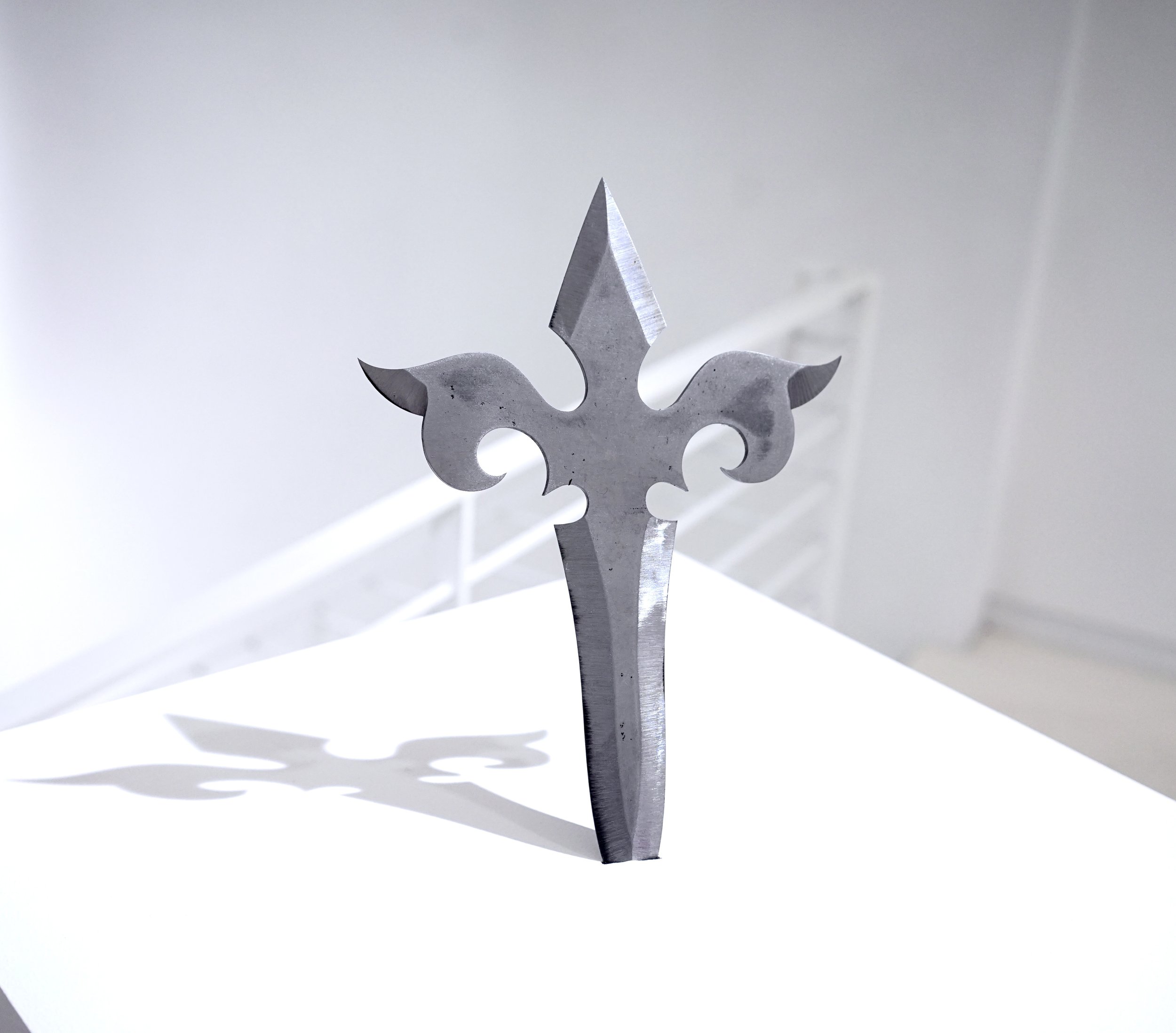

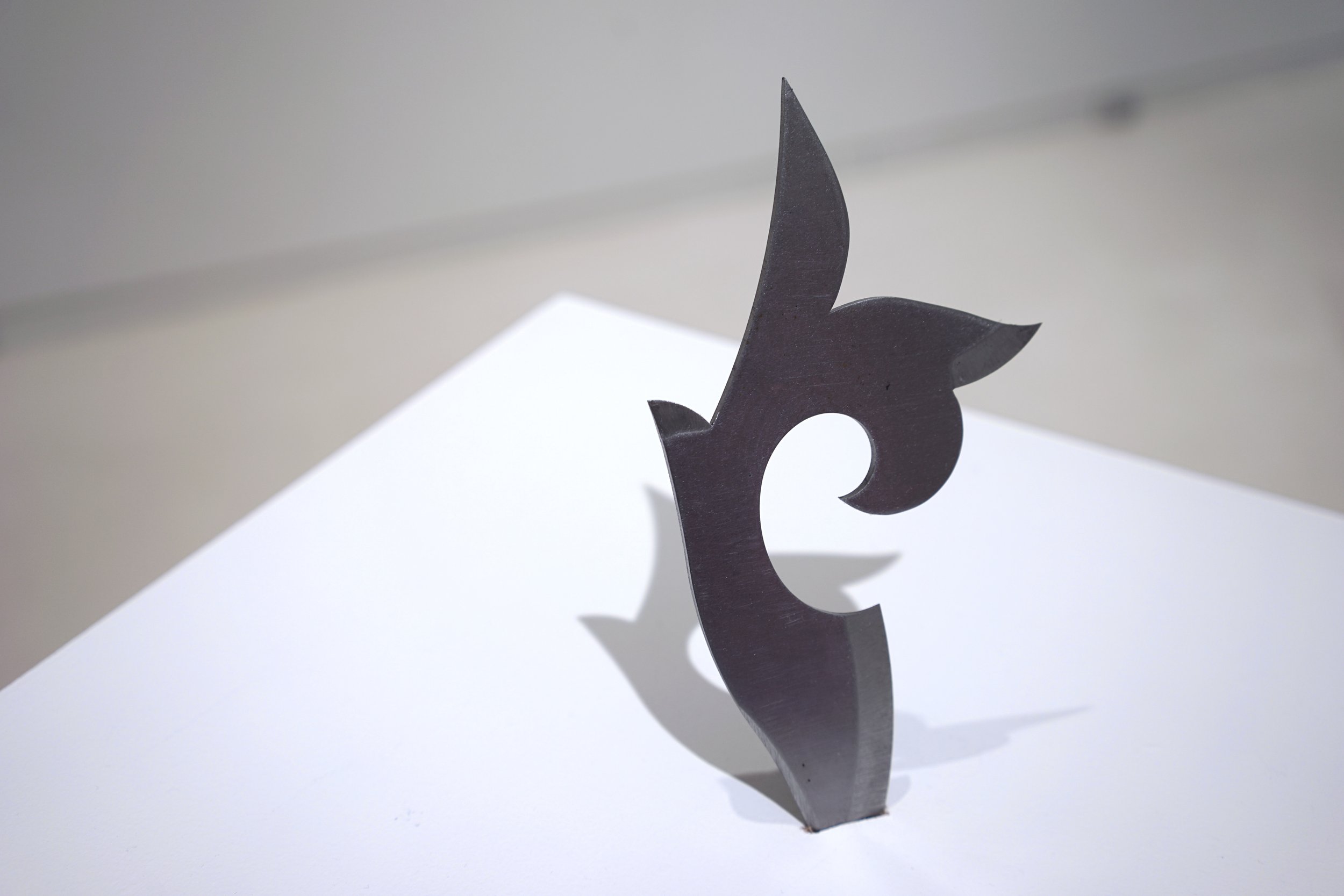

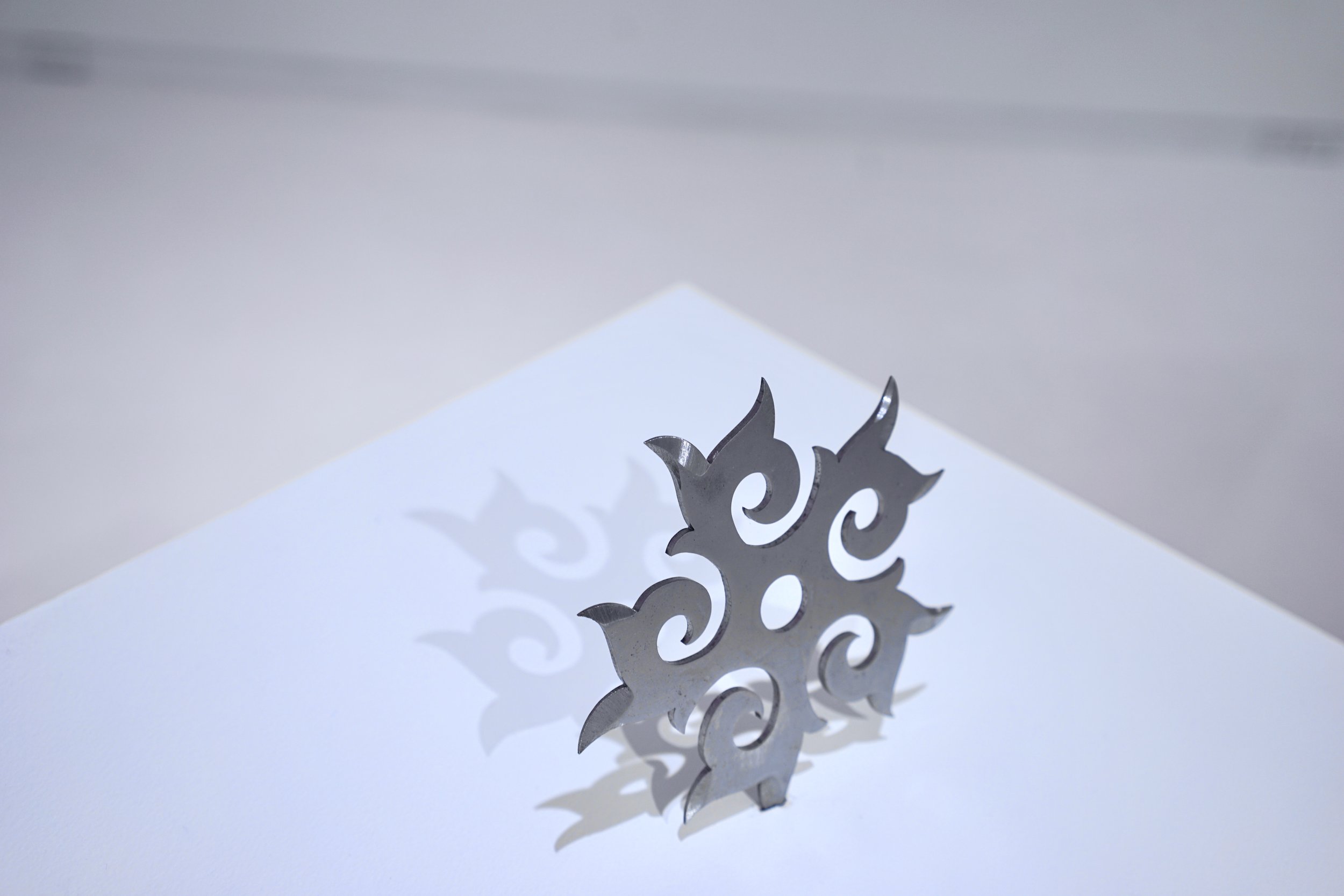
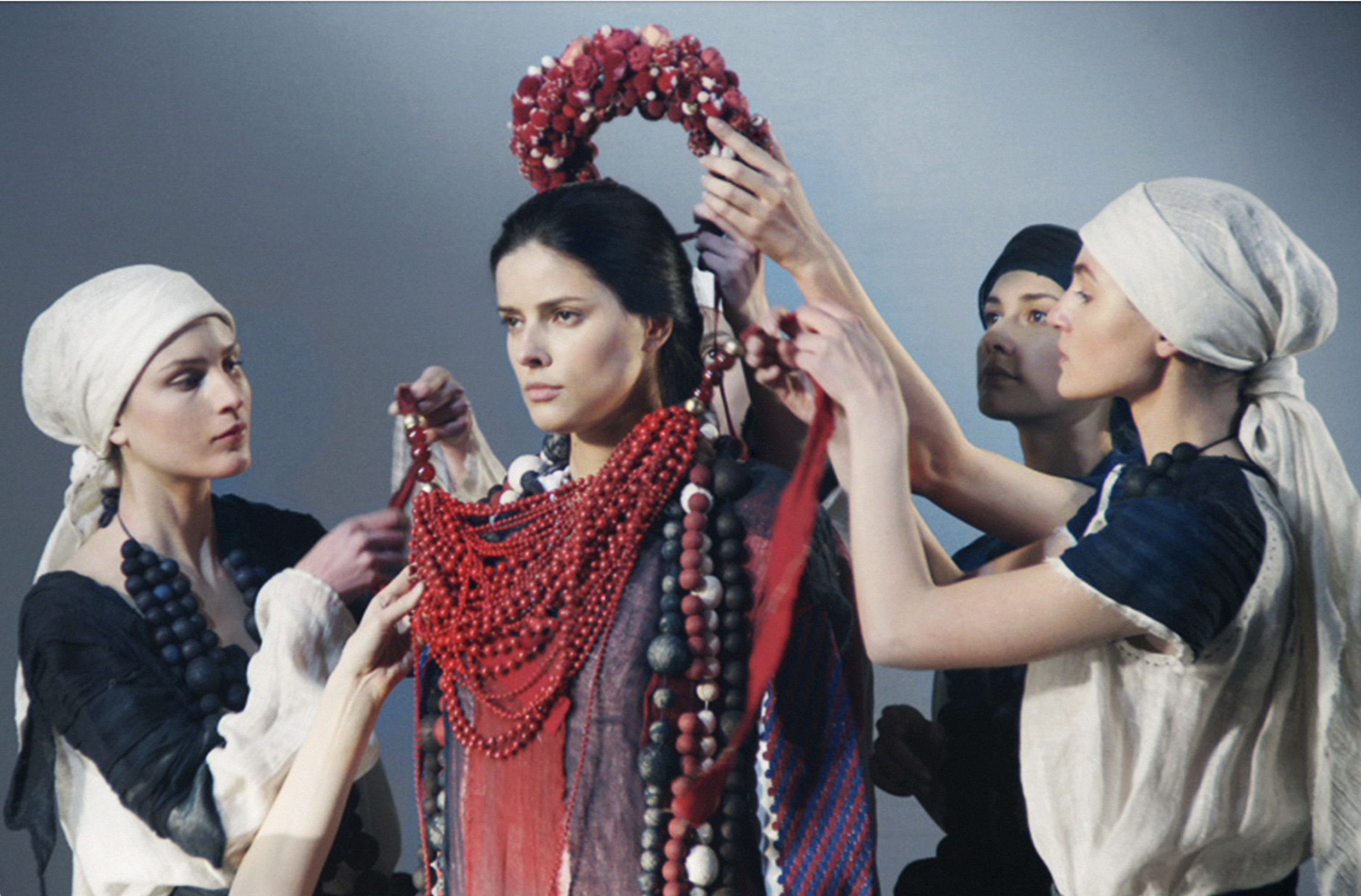
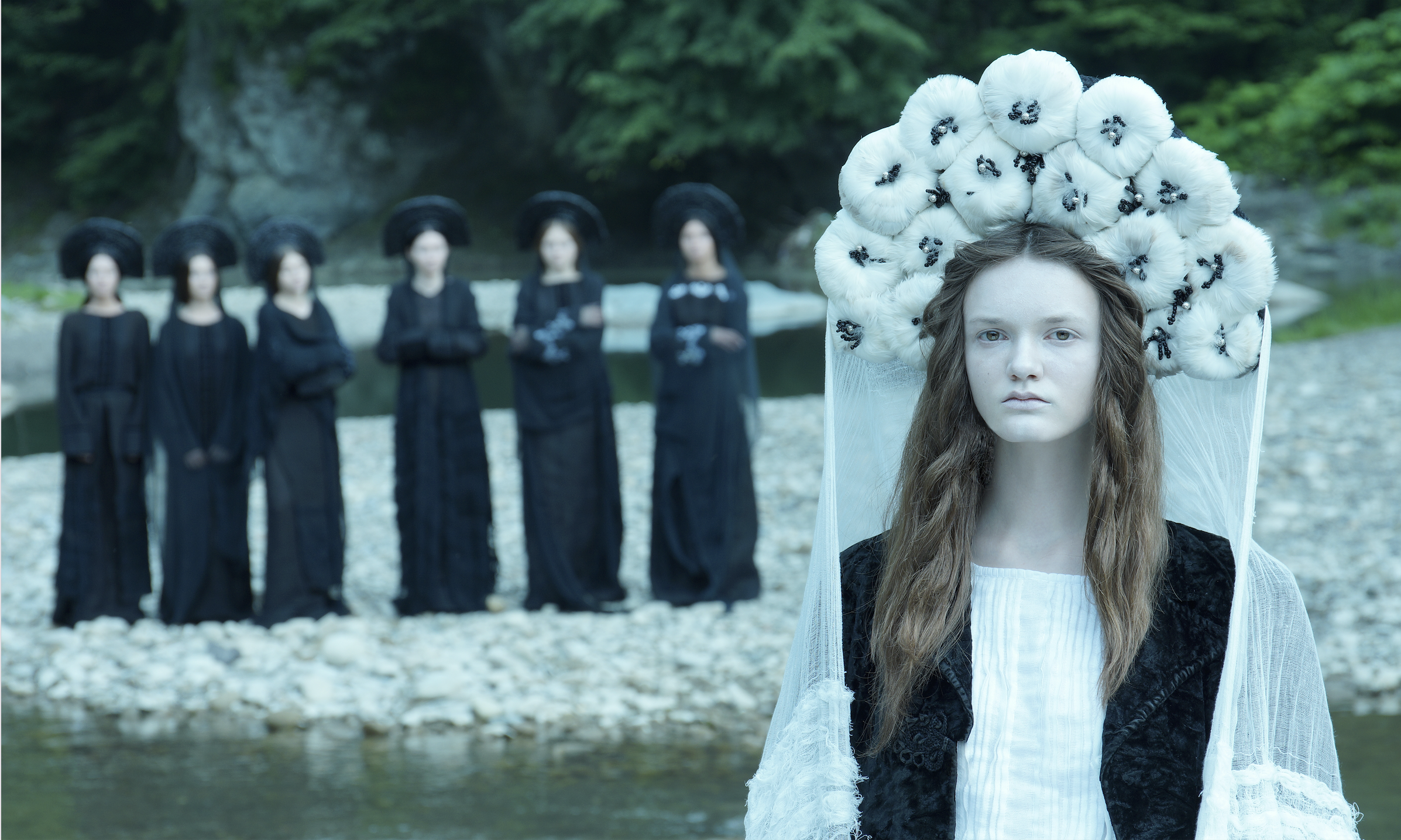
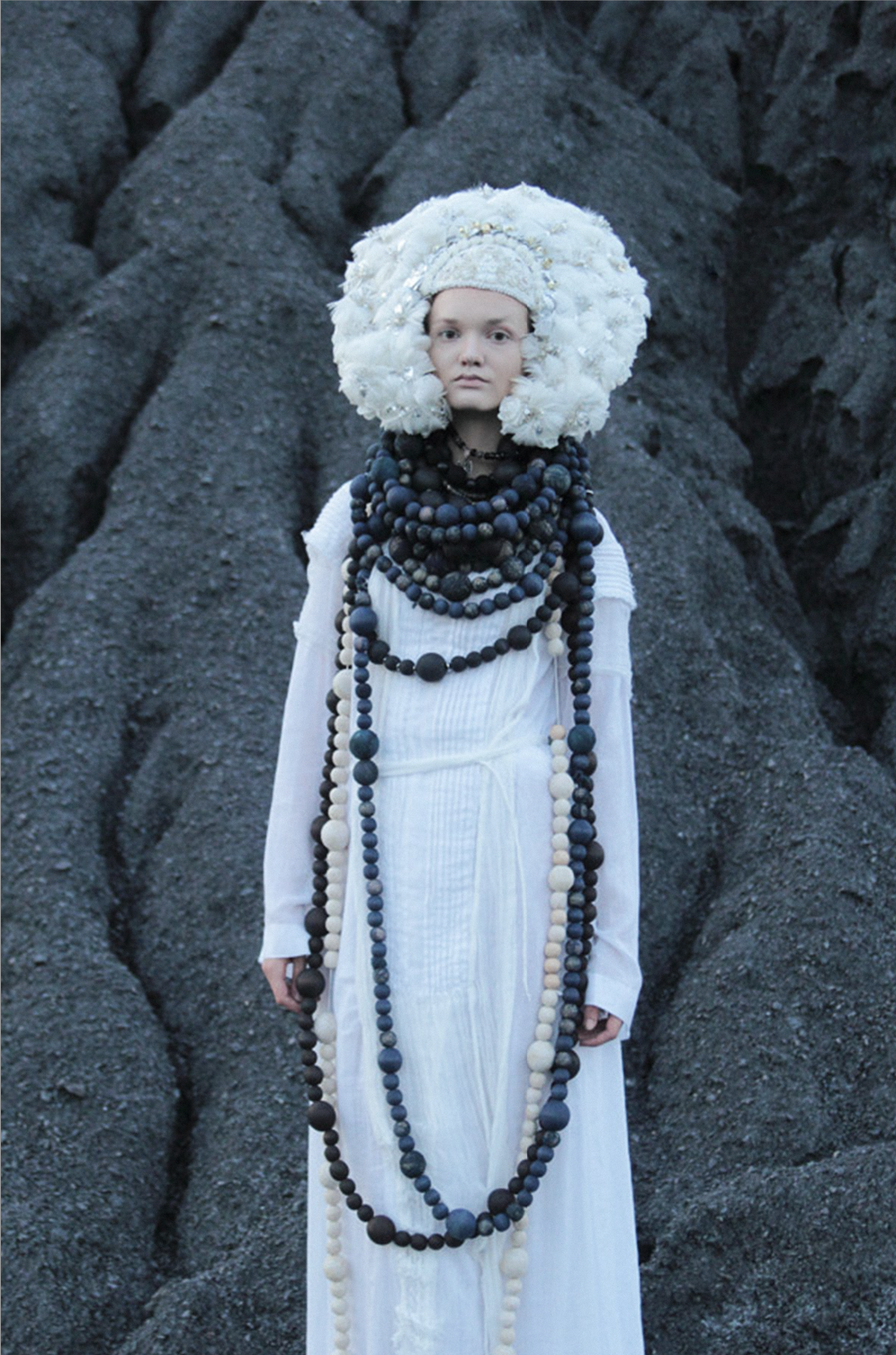
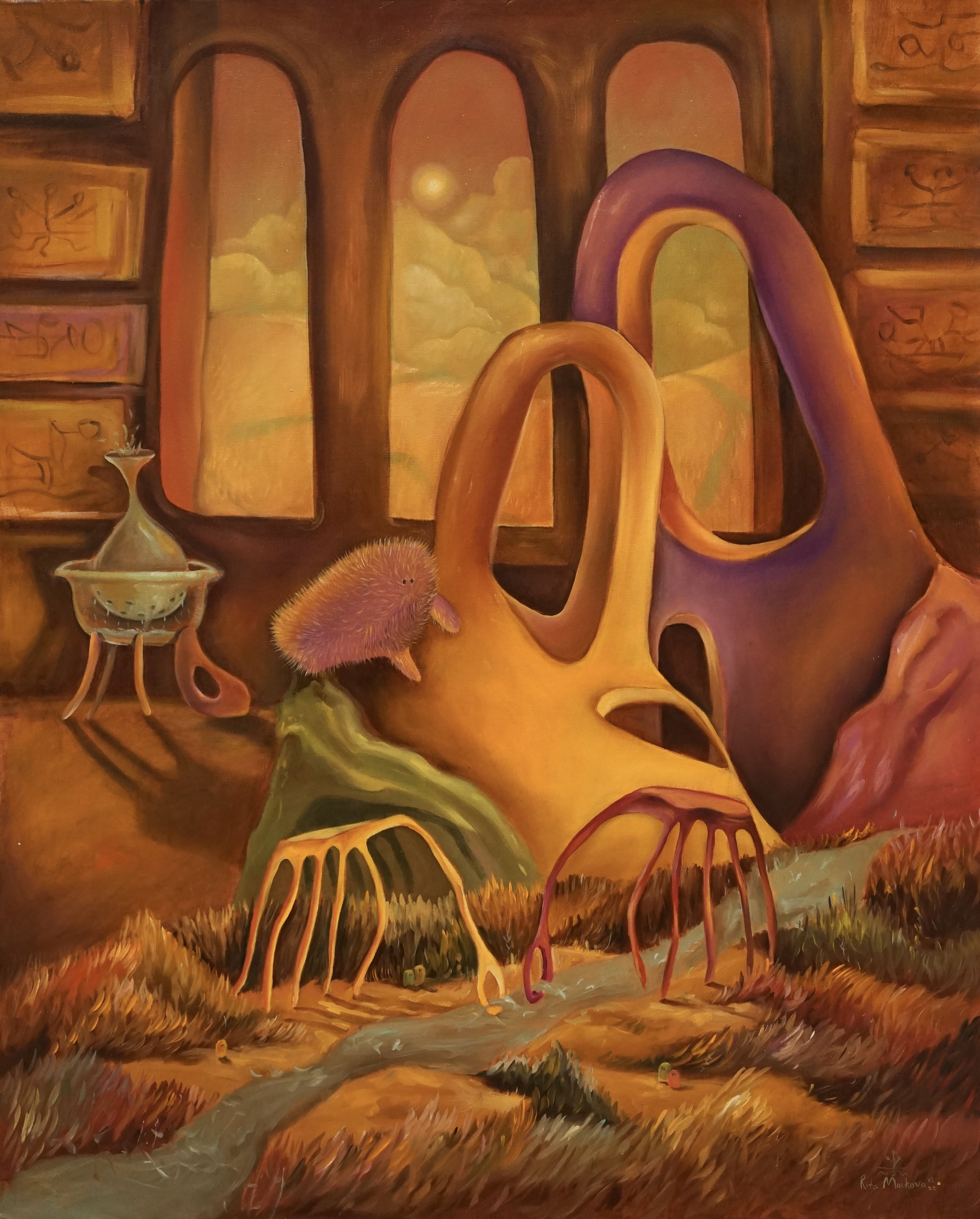
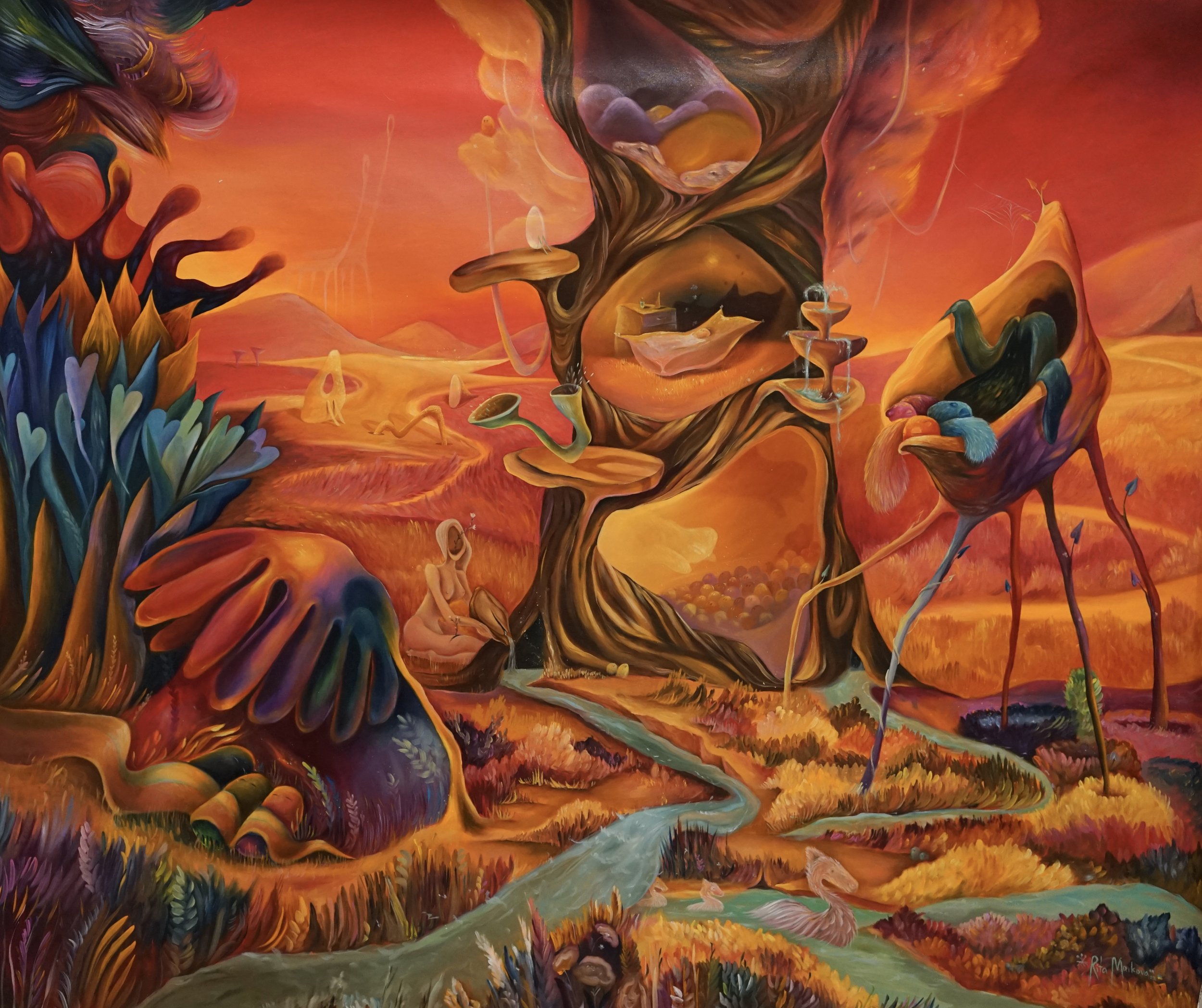

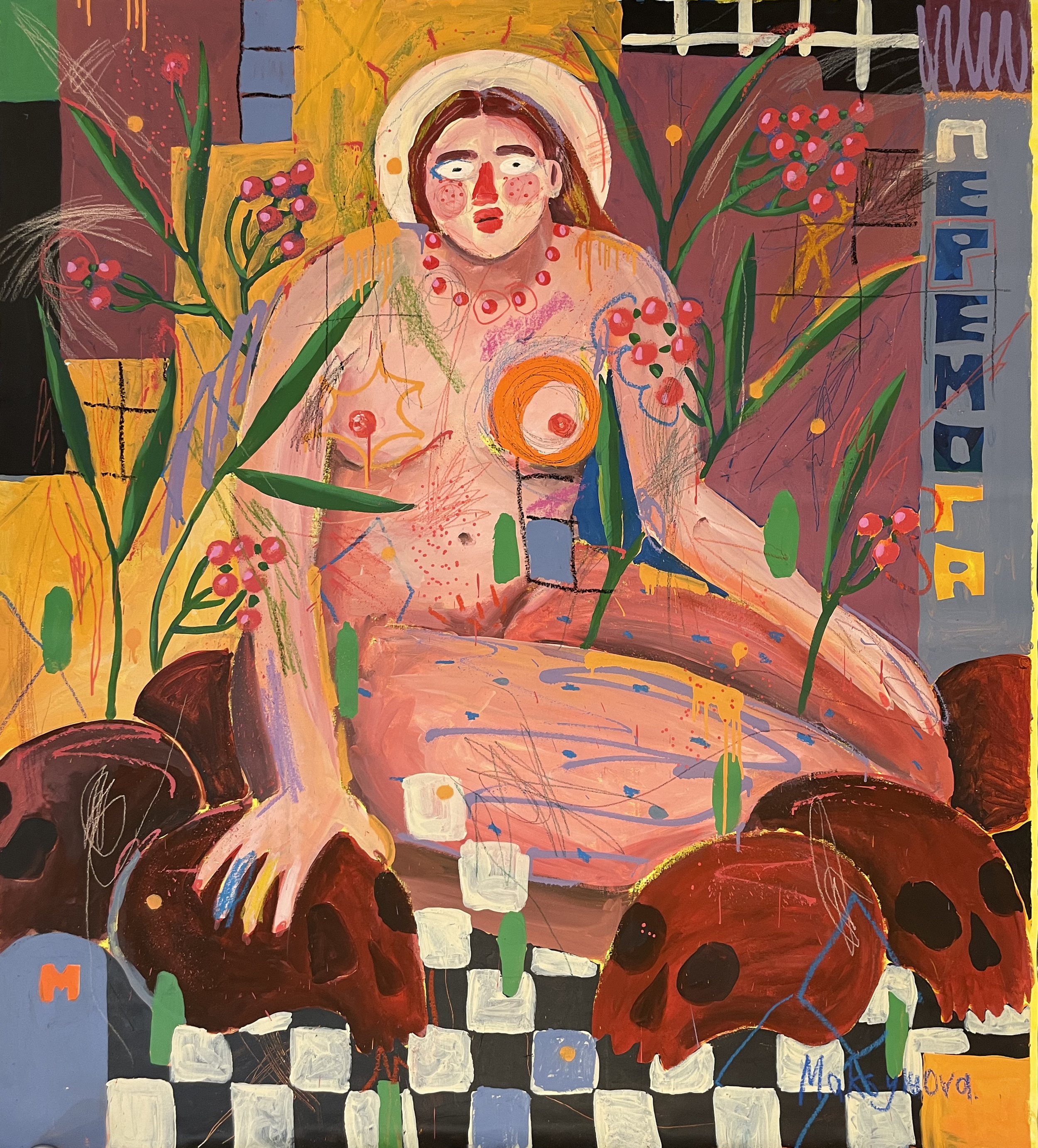
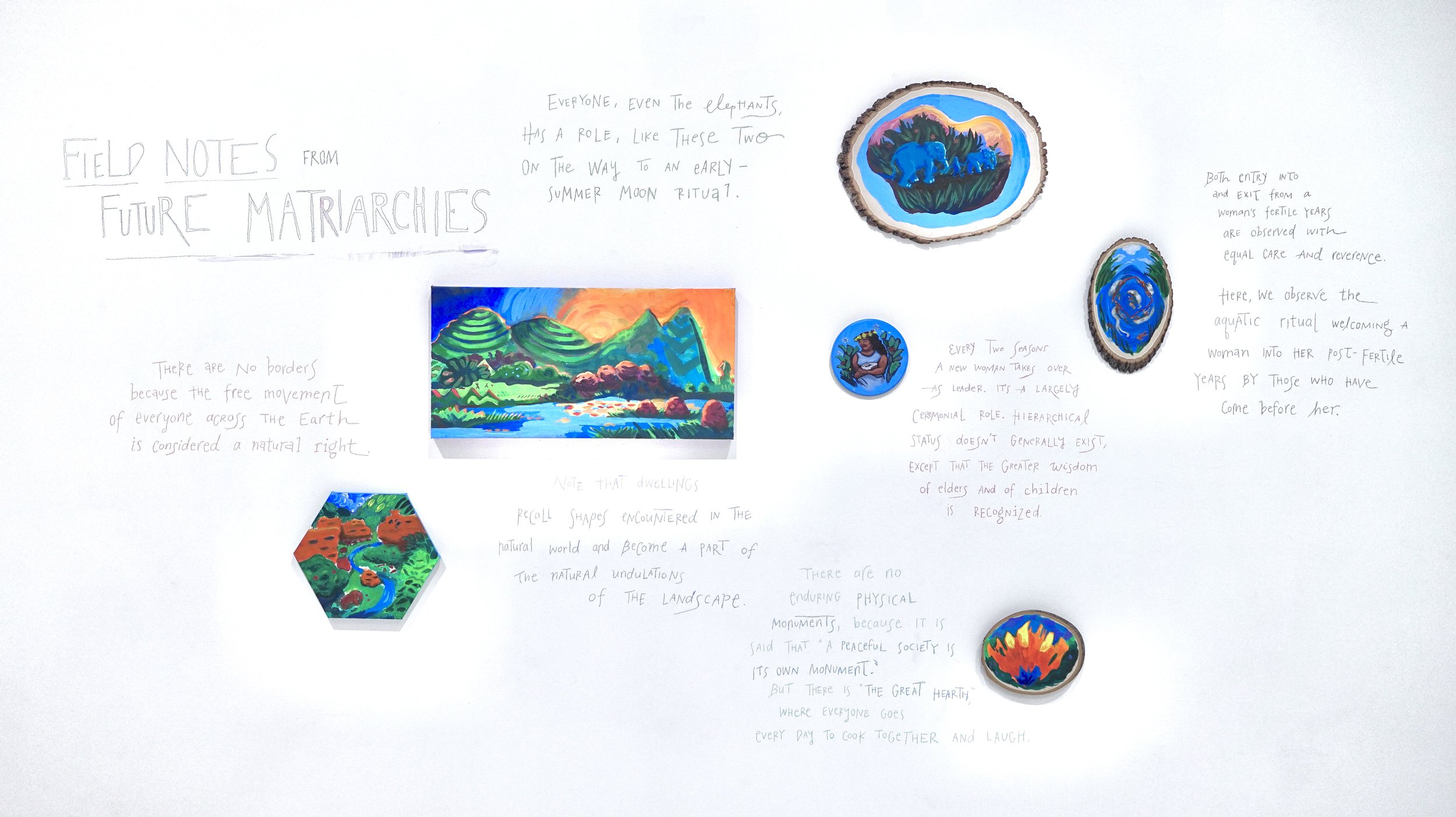
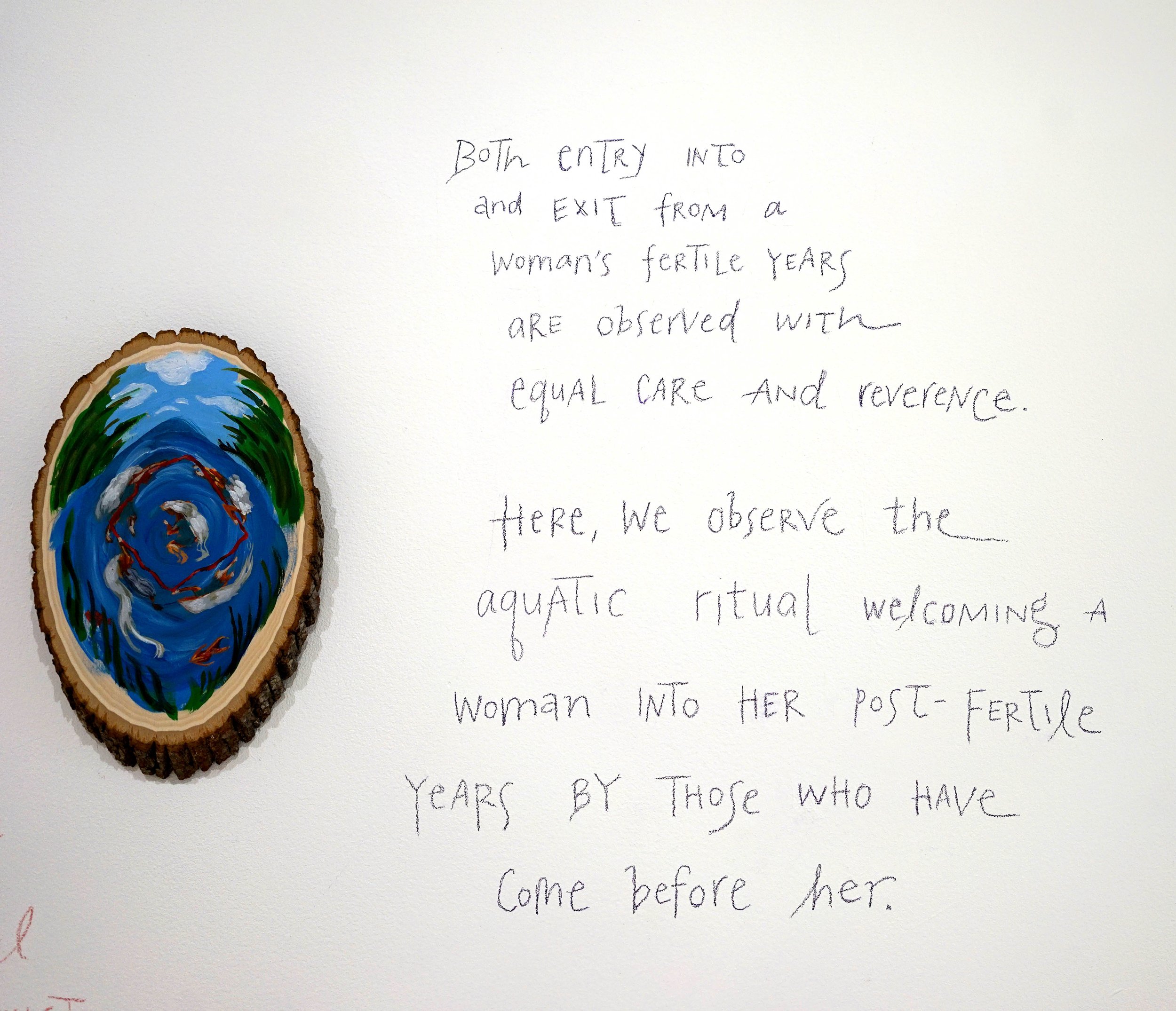
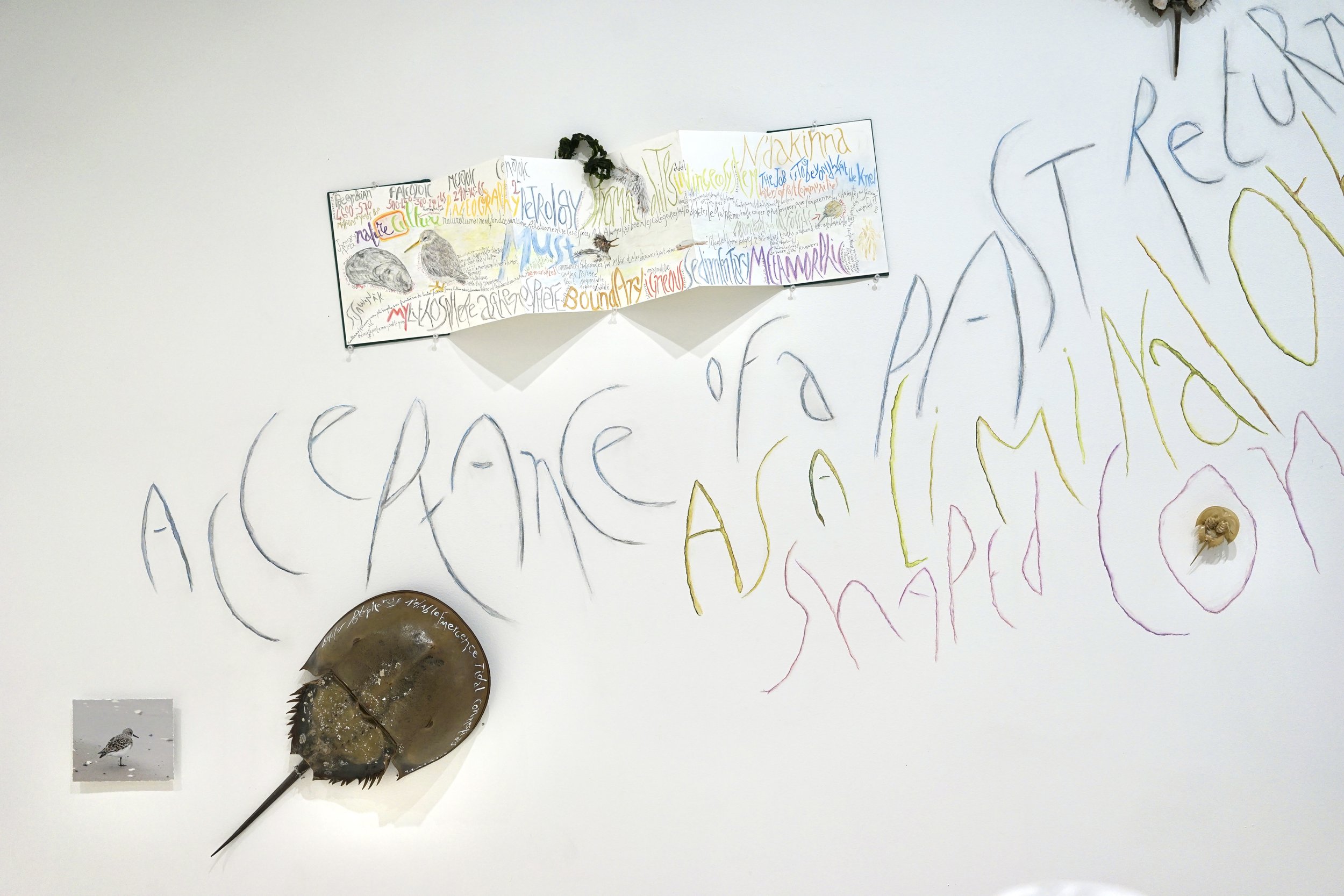



The woman looks at the sky and says, “Upend it all.
Now fall follows summer, before winter comes.
There’s a time for roses and a time for bitter wormwood,
a place for every beast, and every weed and grass,
only I have no place of my own.” And the sky answers,
“Make it yourself. You’re on your own now.”
Kateryna Babkina, March, 2022 / translated from the Ukrainian by Virlana Tkacz and Wanda Phipps
Sapar Contemporary is thrilled to present Women and Other Wild Creatures: Matrilineal Tales, a group exhibition of women artists who draw strength from the connection with the non-human nature, involving it in their healing practices and increasingly fantastical visions of human unity with nature. The show includes artists from Ukraine (Zinaida, Rita Maikova, and Iryna Maksymova) and Kazakhstan (Aya Shalkar and Yerke Abuova), representing the gallery’s DNA, as well as works by French (Nicole Peyrafitte) and American (Susan Coyne) artists working in the U.S.
The inspiration for the exhibition came from seeing intergenerational caravans of grandmothers, mothers, daughters, and family pets migrating from the war zones, as well as the images of nature’s destruction in Ukraine: suffering trees, plants, animals of all kinds, and the whole steppe and wetland ecosystems – in addition to cultivated land. These images have been deeply felt at the gallery whose founders have family, friends, artists, and roots in Ukraine. The sense of terror brought to mind sources of strength available to women, connections that they forge across time and space, rituals recovered and re-invented in times of cataclysms.
Ukrainian poet, Kateryna Babkina, contributed a poem she has written in March 2022. The poem opens with a line: Give me a brother who can protect me; woman is seeking protector and shelter, the sky responds with the final line of the poem: Make it yourself. You are on your own. The words of artist Iryna Maksymova echo the poem. When asked about female images in her work and their connection to the current moment, Maksymova responds: “When I think about Ukraine today, I see a tender but fearless spirit in a feminine body with a huge sword. She is standing in the green field with wildflowers and her bare feet are touching cold, dark soil. She is worried but confident.. She doesn’t need anything, she is enough.” Susan Coyne’s Field Notes from Future Matriarchies is the most futuristic high point of the exhibition, while Zinaida’s lyrical videos are based on her research of the century old traditions. Two young Kazakh artists contribute a bold Eurasian Gen-Z perspective on traditional gender roles and women’s tools.
About Artists
ZINAIDA (Ukraine) is a Ukrainian visual and performance artist and designer. She received her BA from the National Academy of Fine Arts and Architecture in Fine Art and Art History, as well as a BA in Psychology from National University of Kyiv. She is a member of the Food of War International Community. In 2015, she was a project facilitator at Marina Abramovic - In Residence (Kaldor Public Art Project, Sydney, Australia). ZINAIDA’s practice revolves around the study of mythologies, national and archaic images, and their conveyance using contemporary art. Many of her projects are preceded by direct participation in cultural and ethnographic research, including the facilitation of acquaintance and communication with the bearers of ancient knowledge and practices. In her work, the artist focuses mainly on the original art-work of women as the sacred knowledge carriers. ZINAIDA initiated many artistic expeditions in different parts of Ukraine, including the Chornobyl Exclusion Zone. She carries out active philanthropic activities in the field of culture, supports museums, children’s festivals, classical music concertos, and publishing books about Ukrainian artists. The artist has been featured in solo exhibitions at Pinchuk Art Centre (2015, Kyiv, Ukraine), Black Bride projects at the 56th Venice Biennale, and Dakini at the 58th Venice Biennale. ZINAIDA participated in the Art Lima Contemporary Art Fair (Lima, Peru), Art Kyiv Contemporary International Forum of Contemporary Art, and GOGOLFEST Interdisciplinary Festival.
Iryna Maksymova (Ukraine) is a Ukrainian figurative artist. She was born and raised in Kolomyia, a small town in the western part of Ukraine, and now lives and works in Lviv. Maksymova’s work features colorful domestic settings with exotic creatures imbued with a magical quality, whose facial features contort in displays of distress or agony, encouraging the viewer to question the relationship between humans and animals. The storyline, the color palette, text and characters in Maksymova's works blend street art vocabulary and techniques with Ukrainian Primitivism of the 20th century and the tradition of Ukrainian self-taught women artists. Maksimova’s first solo exhibition of paintings took place in 2020 in Lviv. Since then she participated in various group shows in Ukraine and around the world including London (2022), Madrid (2022), Beijing (2022), Los Angeles (2021), Golden Coast (2021), and Berlin (2021).
Rita Maikova (Ukraine) is a Ukrainian figurative artist who lives and works in Kyiv. She earned her BA from Kyiv National University of Technology and Design, as well as her MA from the National Academy of Art. Maikova has been exhibited widely in Ukraine and across Europe. Her work focuses on spiritual reality and meditative stillness. She sees her art as an endless dialogue between the soul and the universe. By investing thoroughly in mindfulness and the present Maikova’s surrealist works are full of symbols, progressing between the conscious and unconscious mind, and provoking the imagination of the viewer. Maikova has been featured in solo and group exhibitions In Ukraine, UAE and Switzerland . She has also been featured in group exhibitions at Strange Place in Kherson (2014), Coralli in Lviv (2014), Space In in Kiev (2015), Talent Energie Fest in Kiev (2015), Feldman Art Park in Kiev (2015), “Yellow Giants” in Odessa (2016), Art&Design.Communications in Kiev (2016).
Kateryna Babkina (Ukraine) is a Ukrainian poet, prose writer, columnist, screenwriter, and playwright. She's the author of four poetry collections (Lights of Saint Elm, 2002, The Mustard, 2011, Painkillers and Sleeping pills, 2014, Charmed for Love, 2017, Does not hurt, 2021), a novel (Sonia, 2013), a novel in short stories (My Grandfather Danced the Best, 2019) and two collections of stories (Lilu after you, 2008 and Happy naked people, 2016). She has also written 3 books for kids (The Pumpkin year, The Hat and the Whale, and Girls Power (co-authored with Mark Livin), which are extremely popular in Ukraine. Her writings have been translated into English, Swedish, Polish, German, Hebrew, French, Spanish, Romanian, Czech and Russian. Her plays have been staged in Kyiv, Vienna and Geneva. Kateryna Babkina has written columns for Esquire Ukraine, Le Monde, Harper's Bazaar. Her poetry was published in a number of anthologies and almanacs (The Kenyon Review (USA), Poem (UK). There are several short movies based on Kateryna Babkina's stories. In 2016 a short film by her script was screened at Cannes Film Festival in young director's selection.In 2021 Kateryna Babkina won the Angelus Central European Literature Award for the My grandfather danced better than anyone else published in the Polish language.
Aya Shalkar (Kazakhstan/US) is a Kazakh conceptual multimedia artist currently based in Los Angeles. At the age of 17, she moved to France to study Visual Arts at the University of Strasbourg. She later transferred to the University of Applied Arts Vienna, Austria, where she received Masters in Graphic Design in 2020. Shalkar is the co-founder of Studio Oneki, an experimental design studio based in Kazakhstan. Shalkar’s artistic practice is rooted in her Central Asian background and Kazakh visual and material culture, with many of her works addressing cultural identity and gender roles. She includes the techniques of embroidery, patchwork and other forms of traditional applied arts that are predominantly practiced by women. Shalkar’s vision is influenced by her graphic design training and passion for sci-fi. Her artistic universe is a place where Central Asian heritage meets science fiction and fantasy. Further, Shalkar pulls from her modeling and acting experience in order to incorporate her own body and image into her artistic projects. Her digital work has organically found its place in Web3 as successful NFTs. Shalkar has been featured in magazines such as Nowness, i-D Magazine, Elle, Sleek, and Blood.
Yerke Abuova (Kazakhstan/US) is a Kazakh-American figurative artist, who has been painting and exhibiting her work since her early teens. She is currently pursuing painting at Cornell University. Abuova works in a variety of media, but primarily focuses on oil painting, murals and sculpture. She depicts complex surreal environments that invent their own logic and create new rules for scale and color. These fantasy worlds explore the themes of memory, cultural histories, ecological anxieties and Central Asian femininity. Abuova also connected her traditional oil painting practice with digital imagery and digitally altered forms. Abuova has participated in group exhibitions at the Education Department of Metropolitan Museum of Art, the Herbert F. Johnson Museum of Art, and in the galleries at Cornell University.
Susan Coyne (US) is an illustrator and writer who divides her time between New York City and Cambridge, Massachusetts. She is a 2016 graduate of the MFA: Illustration as Visual Essay program at the School of Visual Arts (SVA). She received an Alumni Scholarship from SVA for her work in illustrated documentary nonfiction. Her new painting series, Fields of Vision, explores an imagined future in which women are the founders of a collective rural society and maintain it for centuries in harmony with nature. The series examines this society’s rituals and habits from an anthropological, bird’s-eye view: in this imagined future (and in some senses, our actual past), humans and animals cooperate, freedom of movement is encouraged, there are no carceral systems as we know them, and seasonal shifts of the earth and of the body are observed and honored. Coyne’s 2017 book, The ABCs of Subverting the Patriarchal Paradigm, a primer on feminist and anti-racist movements in the United States, was featured in the Netflix film The Incredible Jessica James. Her work was included in the anthology Bad Drawings by Bad Women (TigerBee Press). She is the recipient of an American Illustration Award, and her illustration and writing clients have included LA Review of Books, WBUR, Radiotopia, Radcliffe and Bowdoin magazines, Hyperallergic, and Artnet News.
Nicole Peyrafitte (France) is a Pyrenean-born multidisciplinary artist who is based in Brooklyn. While a longtime resident of New York, her work in painting, action painting, writing, film and video, music, and cooking draws upon her eclectic history and the experiences of shaping identity across two continents and four languages. She prioritizes her practice around exploring sustainability, body and mind, family, art, food, nature, and health as a core axis of her work. Her performances often include food cooked live and served to the audience as sustenance, from whipping cream, crepes and soups, to full dinners. Recent encounters with health issues refocused her work to a more intimate and private practice, one that focuses on finding purpose in deepening connections with other-than-human voices like birds, water, and elements of landscape. Peyrafitte’s work has been presented and/or performed in a range of venues in North America and Europe, including The Poetry Project, Bard College, The Vision Festival and Poets House, the University of California San Diego, the Walker Art Institute, Boise State University, Naropa University, the Birbeck College, the University of London, the University of Edinburgh, Université de Bordeaux, Festival les Voix de La Méditerranée (Sète), Festival de San Luis Potosi (Mexico), and Encuentro Internacional de Escritores in Durango (Mexico). Méditerranée (Sète), Festival de San Luis Potosi (Mexico), and Encuentro Internacional de Escritores in Durango (Mexico).
About Curator
Nina Levent, Ph.D., is an art historian, a museum expert and the founding director of SAPAR Contemporary Gallery + Incubator. Dr. Levent edited two volumes on museum practice—The Multi-sensory Museum: Cross-Disciplinary Perspectives on Touch, Sound, Smell, Memory and Space (2011) and Food & Museum (2013)—she has written widely on museum-related topics, and trained museums globally. Levent has served on the faculty of the New York Art Academy and the Solomon R. Guggenheim Museum. She has created and led 100+ professional development workshops at such renowned museums as Guggenheim, Whitney and Brooklyn museums, the National Gallery of Art, SFMoMA, Walker Art Center, and the Museum of Fine Art, Houston. Dr. Levent’s curatorial and research interests include multi-sensory art, food in art and museums, figurative representations in 1930s Europe, history of the nude and politics of body representation, as well as cross-disciplinary research on creativity and perception, cultural inclusion. She holds a Ph.D. from the Humboldt University, Berlin, and has been a Fellow at Columbia University, Harriman Institute and Rutgers University, Women Studies.
GIVE ME A BROTHER 3/14/22 by Kateryna Babkina, 2022
“Give me a brother, who can protect me,
Who can be there every time I need him,”
the woman begs. But the earth is silent. In the garden
the golden shoots grow lush, but each fruit hangs down
ominously on its long stem, like a stone.
“Give me shelter from peering, lascivious eyes,
so no strange, unwanted hand ever reaches me.
Hide me in the radiance and reflection of your blue depths,”
the woman says. But the river quietly flows by.
No, the river can’t hide her while she’s still alive.
The woman looks at the sky and says, “Upend it all.
Now fall follows summer, before winter comes.
There’s a time for roses and a time for bitter wormwood,
a place for every beast, and every weed and grass,
only I have no place of my own.” And the sky answers,
“Make it yourself. You’re on your own now.”
translated from the Ukrainian by Virlana Tkacz and Wanda Phipps
Народи мені брата, щоби він мене захистив,
щоби він мене був захищав кожен раз, коли було слід -
жінка просить. Земля їй мовчить у відповдь. Золоті в
саду пагони цьогорічні, родючі; та кожен плід,
ніби камінь, звисає загрозливо з довгих віт.
Дай мені покривало від пильних ласих чужих очей,
щоб небажана під ним мене не сягнула жодна чужа рука.
Заховай мене в сяйво зблисків своїх і в прозору блакить тіней -
жінка каже. Ріка попри неї тихо собі тече,
але ні – не сховає живою її ріка.
Жінка дивиться в небо й говорить – поруш цей плин,
у якому за літом йде осінь, й тоді зима,
й час свій мають і квіти руж, і трава полин,
й своє місце є слушне для кожного звіра, всіх бадилин,
лиш для мене свобідного місця ніде нема.

